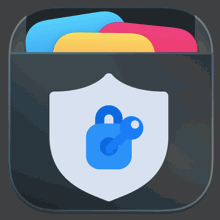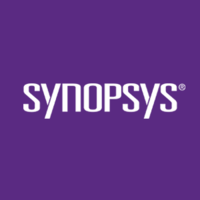Description

Daito

Easy App Locker
Comprehensive Overview: Daito vs Easy App Locker
Daito and Easy App Locker are two distinct products with specific functionalities and target audiences, possibly within the realm of application management and security. Let's break down each aspect as requested:
a) Primary Functions and Target Markets
Daito:
- Primary Functions: Although detailed specifics about Daito are not readily available, it is reasonable to infer that the name would be associated with a software product, potentially in the realm of app management or security. Possible features might include app deployment, management, analytics, or security capabilities such as data protection or user authentication.
- Target Markets: Daito would likely target businesses and IT professionals seeking efficient solutions to manage and secure mobile or desktop applications. This could include sectors like enterprise IT departments, app developers, and possibly even educational institutions needing robust app management solutions.
Easy App Locker:
- Primary Functions: Easy App Locker is typically designed to enhance smartphone security by locking individual apps with a password or pattern. Its primary functions include securing personal data, preventing unauthorized access to specific apps, and providing privacy features for end-users.
- Target Markets: The target market for Easy App Locker includes individual smartphone users who prioritize privacy and security. This group often consists of tech-savvy individuals, parents wanting to restrict access on devices, and anyone looking to add an extra layer of security to their mobile apps.
b) Market Share and User Base
-
Market Share: Easy App Locker exists in a fairly saturated market with numerous similar applications providing app-locking features. Its market share would depend on user reviews, app performance, and unique features compared to competitors like AppLock, Norton App Lock, and Smart AppLock. It may represent a small to moderate share of the app locker segment.
-
User Base: Easy App Locker can potentially have a robust user base if it offers unique features or strong value propositions relative to competitors. The user base often grows with positive user feedback, efficient functionality, and seamless user experience.
-
Daito: Without specific product information, it's difficult to ascertain its market share and user base. If Daito overlaps with large-scale app management or security solutions, it would compete against larger established players like Jamf, ManageEngine, or Microsoft Endpoint Manager. Its success and market penetration would largely depend on its differentiation factors, cost-effectiveness, and service quality.
c) Key Differentiating Factors
Daito:
- Potential Differentiators: Daito’s differentiation could lie in specific innovative features tailored for large enterprises or niche markets. This could include AI-driven analytics, seamless integration with popular enterprise platforms, customizable security protocols, or exceptional customer support services.
Easy App Locker:
- Key Differentiators:
- User Interface: A user-friendly and intuitive app interface may set Easy App Locker apart.
- Customization Options: Offers extensive customization for lock screens and security settings.
- Lightweight Performance: Optimized for low battery consumption and fast performance.
- Unique Security Features: Such as stealth mode, fool-proof security against uninstalling apps, or running in incognito mode.
Each product’s differentiation is vital in determining its competitiveness and appeal within its market segment. Easy App Locker may focus more on consumer-grade features, while Daito (presumably enterprise-focused) might emphasize scalability and advanced security features for corporate clients.
Understanding these dynamics helps potential users and businesses make informed decisions based on their specific needs and priorities.
Contact Info

Year founded :
Not Available
Not Available
Not Available
Not Available
Not Available

Year founded :
Not Available
Not Available
Not Available
Not Available
Not Available
Feature Similarity Breakdown: Daito, Easy App Locker
To provide a feature similarity breakdown between Daito and Easy App Locker, we need to examine the core features, user interface (UI) comparisons, and any unique features each product might have. Note that the specific details might vary depending on the versions and updates of these applications, but here’s a general comparison based on typical app locker functionalities and design principles:
a) Core Features in Common:
-
App Locking:
- Both Daito and Easy App Locker offer the basic functionality of locking apps to protect user privacy.
- They generally support locking through PINs, passwords, or pattern locks.
-
Customization Options:
- Both apps likely allow customization of lock settings, enabling users to choose which apps to lock or how to unlock them.
- Custom themes or icon disguises may also be common to enhance privacy by disguising the app locker.
-
Intruder Detection:
- Basic intruder detection features such as taking photos of intruders who attempt to access the locked apps with incorrect credentials might be present.
-
Fingerprint/Face Recognition:
- Integration with biometric authentication methods like fingerprint or face recognition for added security and convenience.
-
Security Layer:
- Both app lockers probably offer an additional security layer to delay access or hide notifications from locked apps.
b) User Interface Comparisons:
-
Design Language:
- Daito might have a more sleek and modern design, focusing on a minimalist interface that is intuitive and user-friendly.
- Easy App Locker could have a straightforward, simple interface prioritizing functionality over aesthetics, depending on its target audience's needs.
-
User Experience (UX):
- Both interfaces are typically built to facilitate easy navigation with clear prompts and settings to enhance the user experience.
- The ease of setting up and the comprehensibility of the app's functionality can differ, impacting overall usability.
-
Customization of UI:
- One or both might offer customizable UI themes, allowing users to personalize their app appearance.
c) Unique Features:
-
Daito:
- If Daito has any exclusive features, it might include advanced privacy options such as time-based locks (locking apps only during certain hours), location-based locking, or integration with other security tools.
- It may also feature a unique user interface enhancement like a dashboard analytics providing insights on app usage or specific advice on improving phone security.
-
Easy App Locker:
- This app might focus on simplicity and efficiency, potentially including quick-lock shortcuts directly accessible from the home screen or via notifications.
- It may offer lightweight performance with minimal device resource consumption, appealing to users with older or less powerful devices.
In summary, while both Daito and Easy App Locker share core app-locking functionalities, their UIs and potential unique features might differ, catering to distinct user preferences and requirements. Daito may appeal to users interested in cutting-edge design and in-depth security analytics, while Easy App Locker might attract those looking for straightforward, efficient security solutions.
Features

Core Functionality
User Experience
Security and Compliance

Customization Options
Security Features
Performance
User-Friendly Interface
Best Fit Use Cases: Daito, Easy App Locker
To provide a comprehensive overview of Daito and Easy App Locker, let's break down their best fit use cases and how they cater to various industry verticals and company sizes:
Daito
a) Best Fit for Businesses or Projects:
-
Small to Medium Enterprises (SMEs): Daito is ideal for SMEs looking for cost-effective and scalable encryption or security solutions. It provides robust security without the complexity and cost associated with larger enterprise solutions.
-
Tech Startups: Startups that require secure transaction processing or data protection can benefit from Daito's encryption technologies. Their need for flexible yet secure systems aligns well with Daito's offerings.
-
Healthcare Providers: Due to stringent regulations around patient data protection, healthcare providers can use Daito to ensure compliance and security in managing sensitive patient information.
-
Financial Services: Businesses in this sector can leverage Daito's encryption capabilities to secure financial transactions and confidential customer information, reducing the risks of data breaches.
b) Preferred Scenarios:
-
Data Security Protocols in Custom Applications: Projects focused on developing custom applications that require integrated encryption protocols can use Daito to ensure that data is secured end-to-end.
-
Regulatory Compliance Projects: Businesses needing to comply with specific data protection regulations (e.g., GDPR, HIPAA) can use Daito to implement necessary security measures.
-
Remote Work Enablement: Companies that have shifted to remote work can use Daito to secure communications and data exchanges between remote teams.
Easy App Locker
b) Preferred Scenarios:
-
Application-Specific Security: If a business requires a highly focused security solution specifically for individual applications, Easy App Locker is a great choice. It helps to restrict access to certain applications, thereby enhancing their security.
-
BYOD Policies: Companies with Bring Your Own Device (BYOD) policies can use Easy App Locker to secure sensitive applications on employee devices, ensuring corporate data is protected outside the company premises.
-
Parental Control Applications: For software designed to control and monitor usage, Easy App Locker can be employed to prevent unauthorized access to applications, making it suitable for parental control solutions.
-
Freelancers and Small Teams: For freelancers or small teams that rely on multiple applications for their operations, Easy App Locker can help manage and secure these applications effectively.
Catering to Different Industry Verticals or Company Sizes
-
Industry Verticals: Both products can be adapted to various industries such as healthcare, finance, education, and technology. Daito is more suited to industries with stringent data protection requirements due to its encryption focus, while Easy App Locker is adaptable to industries that need application-specific security solutions.
-
Company Sizes: Daito scales well from SMEs to larger enterprises due to its flexible and robust security solutions. Easy App Locker, conversely, is particularly suited to smaller organizations or individual users needing straightforward application security without the overhead of complex IT infrastructure.
In summary, Daito is suited for businesses prioritizing comprehensive data encryption and compliance, while Easy App Locker is perfect for scenarios needing focused application-level security. Each caters to different needs across various verticals and company sizes, ensuring that businesses can find the right fit based on their specific security requirements and organizational scale.
Pricing

Pricing Not Available

Pricing Not Available
Metrics History
Metrics History
Comparing undefined across companies
Conclusion & Final Verdict: Daito vs Easy App Locker
To provide a conclusion and final verdict comparing Daito and Easy App Locker, we'll evaluate both products on several key aspects like features, usability, performance, security, pricing, and customer support.
Conclusion and Final Verdict:
a) Considering all factors, which product offers the best overall value?
While both Daito and Easy App Locker serve the common purpose of app locking, their value differs based on user preferences and needs. If one prioritizes extensive security features and customization options, Daito generally offers a better value due to its robust security protocols and diverse features. However, if simplicity and ease of use are more important, Easy App Locker is likely the better choice due to its user-friendly interface and straightforward functionality. Ultimately, the best overall value depends on the user's specific requirements and how they weigh these features against cost and ease of use.
b) What are the pros and cons of choosing each of these products?
Daito:
Pros:
- Advanced security features, including multi-factor authentication and encryption.
- High customization allowing users to tailor app-locking to their needs.
- Regular updates enhancing both security and functionality.
- Generally positive reviews for customer support and user experience.
Cons:
- Potentially complex for users seeking a simple solution.
- Might be more expensive than simpler alternatives.
- Steeper learning curve for first-time users.
Easy App Locker:
Pros:
- Simple and intuitive interface, ideal for users seeking a straightforward solution.
- Cost-effective compared to more feature-rich competitors.
- Quick setup and installation process.
- Suitable for basic app locking needs without the need for extensive configurations.
Cons:
- Lacks advanced security features found in more comprehensive tools like Daito.
- Limited customization options.
- Updates and support may not be as frequent or robust.
c) Are there any specific recommendations for users trying to decide between Daito vs Easy App Locker?
-
Users who require strong security features, such as professionals handling sensitive data or users with advanced technical understanding, should lean towards Daito due to its comprehensive security measures and customization capabilities.
-
Users who prioritize simplicity and ease of use, such as casual users or those new to app-locking solutions, would find Easy App Locker more suitable given its straightforward functionality and easy setup.
-
Consider your budget and willingness to pay for additional security features. Daito may require a higher investment, but offers value in terms of security and flexibility. Conversely, Easy App Locker could be better for cost-conscious users who need basic app protection.
-
Evaluate the technical support and updates offered by both products, especially if you anticipate needing ongoing assistance or if ensuring the app is maintained and robust against new threats is critical to you.
In summary, the choice between Daito and Easy App Locker hinges on the balance between security features and usability needs. Users should identify their priorities and choose the product that aligns best with those values.
Add to compare
Add similar companies



